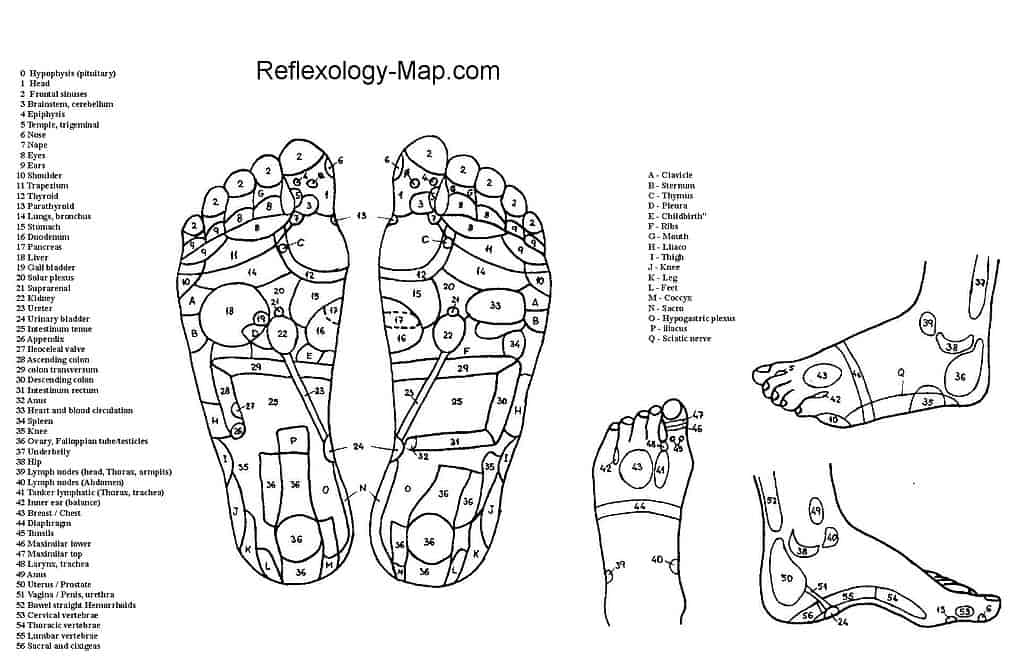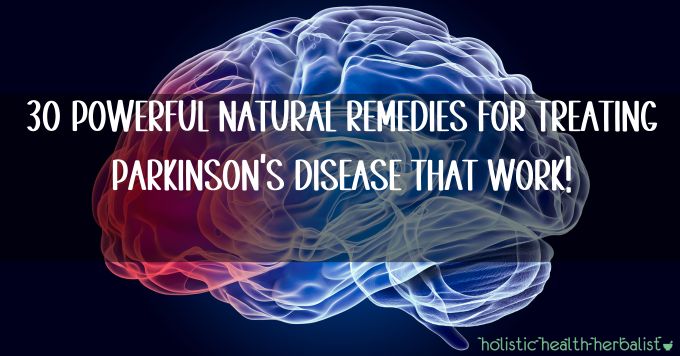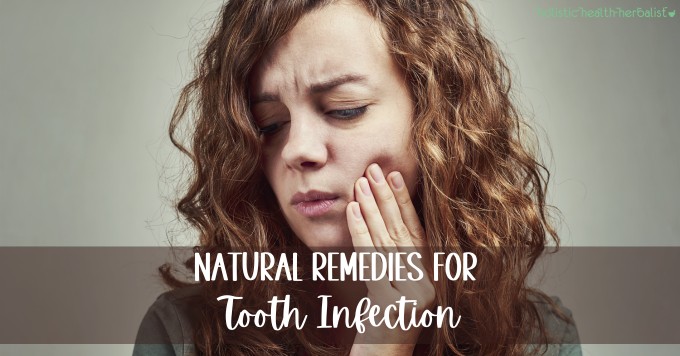
Persistent Postural Perceptual Dizziness (PPPD) is a condition that can have debilitating effects on the daily lives of those suffering from it as it is characterized by an abnormal sensation of swaying or uneven movement even when standing still. It's important to understand what PPPD is, as well as treatment options and natural remedies for PPPD.
By exploring different techniques such as lifestyle changes, exercises and maneuvers, supplements, and other alternative treatments, sufferers may be able to find relief in managing their symptoms.
Today, we will look at all aspects of PPPD, including its symptoms, causes, treatment, natural remedies, and how best to cope with the mental health impact of living with this disorder.
We will also explore some effective natural remedies for PPPD so you can make an informed decision about your own care plan moving forward.
What is Persistent Postural Perceptual Dizziness (PPPD)?
Persistent Postural-Perceptual Dizziness (PPPD) is a symptom of chronic dizziness caused by a vestibular condition. It is characterized by an acute and persistent feeling of unsteadiness, lightheadedness, vertigo, and dizziness that can last throughout the day.
These sensations often continue even while sitting or laying down and can last for months or years, which is why PPPD is such an exhausting and debilitating condition. It is often seen in vestibular patients who have had a history of acute episodes of dizziness.
PPPD Symptoms
The most common symptom of PPPD is persistent dizziness or lightheadedness when standing up or walking around.
Other symptoms of PPPD include:
- Nausea and vomiting
- Headaches
- Difficulty focusing on objects
- Blurred vision and double vision
- Reduced ability to concentrate or focus
- Feeling faint
- Neck pain and weakness
- Fatigue
- Feelings of irritability and fear
- Panic attacks
- Difficulty sleeping
- Difficulty concentrating
- Feeling off-balance even while sitting down
- Ringing in the ears (tinnitus)
- Vertigo (sensation of spinning)
- Anxiety and/or depression
- Feeling dizziness while sitting or standing
The exact cause of PPPD remains unknown, but it has been linked to various factors, including stressors such as emotional trauma or physical injury to the head/neck area that can affect the vestibular system’s ability to function properly, leading to a disruption in balance control systems resulting in persistent postural perceptual dizziness symptoms.
Are PPPD and 3DP The Same Condition?
No, Persistent Postural-Perceptual Dizziness (PPPD) and Transient Postural-Perceptual Dizziness (3PD) are not the same.
PPPD is a chronic condition characterized by persistent feelings of dizziness, nausea, and unsteadiness.
3PD is a less severe form of dizziness that appears suddenly when standing or sitting up but usually passes quickly.
PPPD Causes and Triggers
So what causes PPPD to begin with? Well, unfortunately, the root cause of PPPD is not known, but it is believed to be related to the vestibular system.
The vestibular system is the sensory organ in the inner ear that helps to maintain balance and spatial orientation. It consists of two parts: the semicircular canals and the otoliths. The semicircular canals detect angular acceleration, while the otoliths sense linear acceleration, such as when you turn your head or move up and down. Together they provide a sense of balance and help us orient ourselves in our environment.
It is assumed that lifestyle factors such as poor posture due to prolonged sitting at workstations can also contribute to PPPD, as well as certain medications used for treating high blood pressure and heart conditions that can have an effect on one's sense of balance.
PPPD is often triggered by an acute imbalance in the vestibular system caused by an inner ear infection or inflammation such as vestibular neuritis or BPPV (Benign Paroxysmal Positional Vertigo).
In most cases, the symptoms will resolve on their own, but if they persist for more than three months, it is considered PPPD.
Other causes and triggers of PPPD include:
- Infection or trauma to the neck or head
- Abnormal posture or movement habits
- Stress, anxiety, or depression
- Vestibular migraine
- Migraine
- Certain medications
- Hormonal changes during menopause
- Sleep deprivation
As you can see, PPPD can occur for many reasons, which is why it can be tricky to diagnose.
How PPPD is Diagnosed
PPPD can be difficult to diagnose and is often misdiagnosed as a 3PD (three-part dizziness) disorder.
To diagnose PPPD, doctors will first take into account your medical history along with any current medications you are taking. They will then look for the symptoms associated with the condition.
These include lightheadedness, unsteadiness, and difficulty focusing on objects.
The doctor may also conduct a vestibular assessment to evaluate the patient’s balance and coordination. This assessment may involve tests such as head thrusts and gaze stabilization exercises to evaluate your vestibular system’s functioning capacity.
Additionally, the doctor may order imaging tests such as an MRI or CT scan to rule out other causes of dizziness.
This is to determine what type(s) of treatment plan would be best suited for managing your particular case based on its severity level after ruling out any other potential causes, such as inner ear infections, etc.
Once all diagnostic tests have been completed, the doctor can make an accurate diagnosis of PPPD and recommend treatment options accordingly.
PPPD Treatment
Treatment for PPPD typically involves physical therapy to improve balance and coordination, medications to reduce symptoms such as anxiety or depression, vestibular rehabilitation exercises to retrain the brain's ability to process visual information and maintain balance, lifestyle modifications such as avoiding triggers that can worsen symptoms, and relaxation techniques like yoga or meditation.
In some cases, cognitive behavioral therapy may be recommended in order to address any underlying psychological issues that may be contributing to the disorder.
Medication for PPPD
Medications used to treat persistent postural perceptual dizziness (PPPD) include anti-anxiety medications, antidepressants, and anticholinergics.
These medications can help reduce symptoms such as anxiety, depression, fatigue, and dizziness.
However, it is important to note that these medications do not cure the underlying cause of PPPD; they only provide temporary relief from its symptoms.
Physical Therapy for PPPD
Physical therapy can be an effective treatment option for persistent postural perceptual dizziness (PPPD). A physical therapist will assess your condition and create a personalized plan of exercises designed to improve balance and coordination while reducing dizziness associated with PPPD. This may include vestibular rehabilitation exercises or other activities aimed at improving posture and body awareness.
Surgery for PPPD
Surgery is rarely recommended as a treatment option for persistent postural perceptual dizziness (PPPD).
If other treatments have failed or if there are structural abnormalities in the inner ear causing the symptoms of PPPD, then surgery may be considered as a last resort.
The most common type of surgery performed on patients with this condition is called labyrinthectomy, which involves removing part or all of the inner ear structures responsible for balance control.
Having said this, there are natural remedies and alternative techniques that may also be beneficial in managing the symptoms of PPPD.
PPPD treatment success is just on the horizon! So, let's dive in!
15 Natural Remedies for PPPD and Alternative Techniques
Many people who suffer from PPPD (Peripheral Postural Position Disorder) have found natural remedies to be a helpful way to manage their symptoms.
Herbs and Supplements for PPPD
Supplementation can be a great way to support symptoms of PPPD. Certain vitamins, minerals, and fatty acids can help reduce inflammation and improve overall balance, coordination, and cognitive function.
Many natural supplements can support the symptoms of PPPD:
- Vitamin B-12 - Helps with fatigue and dizziness and plays an important role in maintaining healthy nerves, which could potentially reduce some PPPD-related issues. Take 2500mcg daily.
- B2 (Riboflavin) - Helps with intense headaches associated with PPPD. Take 400mg daily.
- Vitamin D - Low levels of vitamin D have been found in patients with vestibular disorders such as benign paroxysmal positional vertigo (BPPV), Meniere’s disease, and vestibular neuritis. Take 2500 IU daily for a few weeks.
- Magnesium - An essential mineral that helps regulate nerve signals throughout the body, which can improve overall balance and coordination. If you suffer from migraines, magnesium is the first supplement to start with. Take 400-800mg daily. Start slow since large amounts will cause diarrhea.
- Vitamin C - Helps reduce inflammation and can be beneficial for alleviating bruising on affected areas. Take 1000mg daily.
- Citrus Bioflavonoids - If you suffer from tinnitus, this has been shown to be helpful. Take 1000mg daily.
- L-lysine - A naturally occurring amino acid with anecdotal evidence for reducing tinnitus and dizziness. Take 1000mg daily.
- Zinc - Promotes optimal functioning of the immune system, aiding in quicker recovery from dizziness-related falls or injuries. Take 15mg daily with food.
- Omega-3 fatty acids - Provides essential fatty acids to help reduce pain, improve cognitive function, and protect against heart disease and stroke risk associated with PPPD. I like taking fish oil to get in my daily needs for omega-3s.
- Ginkgo biloba - Improves circulation in the inner ear. Take 120mg 2-3x daily.
- Pycnogenol - Also helps improve circulation in the inner ear. Take 100mg once daily.
- Ginger root - Take 300-500mg daily for symptoms of nausea.
- CoQ10 - Some have reported improved symptoms by taking 100mg of CoQ10 daily.
- Vinpocetine - Has been shown to reduce symptoms of dizziness. Take 10-15mg daily.
- Turmeric root - An excellent herb for reducing inflammation and promoting circulation. Take 500mg twice daily.
By taking these natural remedies for PPPD regularly as part of an overall treatment plan, individuals suffering from this disorder can experience an improvement in symptoms.
Essential Oils for PPPD and Dizziness
Essential oils can be a great natural treatment for dizziness. Dizziness is a symptom of many different conditions and can be triggered by a variety of factors. Essential oils like lavender, ginger, and peppermint are known to help reduce the feeling of dizziness.
They can also help with vertigo, a type of dizziness caused by an imbalance in the vestibular system.
To use essential oils as a treatment for dizziness, you can either inhale them directly or add them to a diffuser or bath. You may also want to try using them topically on your skin by adding a few drops to 1 oz of massage oil.
While essential oils may not completely cure your dizziness, they can provide relief from its symptoms and make it easier to manage.
Homeopathy for PPPD
Several homeopathic remedies can be helpful in managing symptoms associated with PPPD and are worth trying.
Here is a list of commonly used homeopathics for this condition:
- Ruta Graveolens - good for relieving eyestrain associated with trying to focus on objects while dizzy. Also good for muscle stiffness.
- Hypericum Perforatum - Helps heal damage to nerve-rich areas
- Arnica Montana - Helps with feelings of restlessness when you're unable to move around as you would like
- Borax - Use when you experience dizziness when tilting the head downward
- Nux Vomica - Use when you experience dizziness accompanied by nausea or vomiting
- Cocculus - for those dealing with dullness or confusion, dizziness, slowness, nausea, headaches, and weakness (This is a GREAT remedy)
- Aconitum Napellus - helps with inner ear problems
- Calcarea Carbonica - Supports mental and emotional well-being during difficult situations.
- Natrum Carbonicum - Helps with headaches and insomnia
- Chamomilla - Excellent for inner ear problems
Simple Daily Changes
When dealing with such a debilitating condition, it can feel overwhelming when deciding where to start. The following is a list of simple changes you can start making in your daily life that can help support overall health and well-being and provide your body with the energy and resources it needs to heal.
- Avoid sudden movements and maintain good posture
- Practice deep breathing or meditation to reduce stress
- Get adequate sleep, rest, and exercise
- Limit or eliminate your intake of caffeine, alcohol, tobacco, and salt. This is called the CATS diet. (only limit salt if under the guidance of a healthcare professional)
- Increase hydration (I enjoy using Liquid IV Electrolytes to help me drink more water) Be sure to check out my post on the benefits of lemon water!
- Eat a healthy diet with lots of vegetables, fruits, lean protein, and complex carbohydrates.
- Use essential oils such as lavender and peppermint to promote relaxation
- Try vestibular rehabilitation exercises to retrain the balance system
- Try sleeping reclined rather than flat, this will give you a more upright posture that can help when feeling dizzy
- Try a neck-supporting pillow (these work really well for PPPD vertigo)
- When you're hit by a flair of PPPD, try distraction techniques like listening to a podcast, audiobook, or music or watching a good tv show if possible. This will help take your mind off of feeling dizzy.
PPPD Exercises and Maneuvers
*** Please note that the following exercises and maneuvers should be done under the guidance of a health professional.
Exercise and certain maneuvers can be beneficial for treating PPPD (Peripheral Postural Position Disorder). These exercises can help create a balance between the vestibular, visual, and somatosensory systems in order to reduce dizziness-related symptoms.
This could include slow movements such as standing, walking, or lying down slowly, Cawthorne-Cooksey exercises that require various movements of the head and limbs, yoga poses that help improve balance and coordination, the Valsalva maneuver, which helps alter the pressure in the inner ear, and Brandt-Daroff exercises which involve a series of head turns while lying down or standing up.
All these PPPD treatment exercises have been known to be effective in relieving dizziness associated with PPPD.
Ask your PPPD physical therapist to teach you how to do the following movements properly:
- Slow movements, including walking, standing up, and lying down
- Cawthorne-Cooksey exercises, which involve a variety of head, trunk, and limb movements
- Yoga poses such as cat/cow and supported side plank to help improve balance and coordination
- Valsalva maneuver, which involves holding your nose and blowing gently against it to alter the pressure in the inner ear
- Brandt-Daroff exercises, which involve a series of head turns while lying down and then standing up to ease dizziness symptoms.
Acupressure and Reflexology for PPPD
Acupressure is a form of treatment that has been used to treat dizziness for centuries. It is a form of traditional Chinese medicine that uses pressure points on the body to relieve dizzy spells and other symptoms associated with true vertigo.
The pressure points are located along the body’s meridians, which are believed to be energy pathways.
When these points are stimulated, it can help reduce dizziness symptoms. Acupressure is an effective treatment for dizziness because it helps to release tension in the body and restore balance. It also helps to improve circulation, which can help reduce feelings of lightheadedness or dizziness.
Acupressure can be done at home or by a professional practitioner, depending on the severity of your symptoms.
To use acupressure for PPPD, simply massage the undersides of your two outer toes on each foot for several minutes a few times a day.
Lifestyle Changes for PPPD
Treatment for PPPD should also include making lifestyle changes since leading a healthier lifestyle can also help reduce symptoms of persistent postural perceptual dizziness. This includes avoiding triggers that make you feel dizzy, such as sudden movements or bright lights.
It is also important to get adequate rest each night so your body has time to recover from any physical activity during the day.
Eating a balanced diet full of nutrient-rich foods will provide essential vitamins and minerals needed for optimal health.
Reducing stress levels through relaxation techniques like yoga or meditation can be beneficial in managing symptoms associated with PPPD.
Coping with the Effects of PPPD in Daily Life and Mental Health
Coping with PPPD (Peripheral Postural Position Disorder) can be a challenging task. It is important to remember to stay positive and seek out support when needed even when PPPD recovery time may seem long. Don't forget to stay in contact with friends and loved ones, so you do not start feeling isolated and unsupported.
Utilizing relaxation techniques such as progressive muscle relaxation, deep breathing, and mindfulness meditation can help reduce stress and anxiety in the body.
Exercise is also recommended to improve mobility and reduce pain.
Engaging in activities that you find enjoyable or therapeutic, like listening to music or going for walks (even short or slow ones), can also make it easier to stay active.
Developing a healthy diet that includes nutritious foods to support the immune system is also key in managing symptoms of PPPD.
It's essential to work closely with a healthcare provider in order for them to develop an individualized treatment plan that works best for you.
- Exercise regularly to improve mobility and reduce pain.
- Utilize physical therapy to strengthen the muscles of the affected areas and improve balance.
- Practice relaxation techniques such as deep breathing, progressive muscle relaxation, and mindfulness meditation to help manage stress and anxiety symptoms in the body.
- Develop a regular sleep pattern, ensuring you get enough rest each night.
- Eat a balanced diet that includes nutritious foods that support the immune system and promote overall health.
- Stay active by participating in activities that you find enjoyable or engaging, such as listening to music or going for walks.
- Consider using assistive devices like canes or walkers if it becomes difficult to balance on your own without them being an additional safety precaution.
PPPD symptoms and treatment can feel like a long road to travel, but just know that there IS hope!
Frequently Asked Questions About PPPD
What causes pppd?
The causes of PPPD are not yet known, however, possible contributing factors include trauma, stress, exhaustion, or hormonal changes. Other possible causes may include genetic predisposition or a previous history of anxiety and depression.
How do you treat PPPD at home?
Many people with PPPD find relief using natural home remedies such as vestibular rehabilitation therapy (VRT), the Epley maneuver, the Semont maneuver, Brandt-Daroff exercises, herbal supplements and teas for dizziness and nausea, essential oils for dizziness and nausea, acupuncture for dizziness and nausea, mindfulness and relaxation techniques for managing stress and anxiety.
Lifestyle changes such as limiting caffeine intake or alcohol consumption may also help manage symptoms.
What is PPPD in medical terms?
PPPD stands for Persistent Postural Perceptual Dizziness.
What is the best medication for PPPD?
The best medication for PPPD will depend on the individual and the severity of their condition. Medication choices often include antiemetics, antidepressants, anxiolytics, anticonvulsants, antihistamines, and anticholinergics.
Psychological interventions such as cognitive-behavioral therapy (CBT) and psychotherapy are also commonly used to reduce symptoms.
What triggers PPPD?
PPPD can be triggered by a variety of factors, including motion sensitivity, anxiety or stress, certain medications, inner ear problems, and even changes in barometric pressure.
It is important to identify the underlying cause of PPPD in order to develop an appropriate treatment plan that will effectively reduce symptoms.
How do you treat persistent postural perceptual dizziness?
Treatment for persistent postural perceptual dizziness (PPPD) typically centers around addressing the underlying cause.
In cases where the cause cannot be identified, treatment focuses on managing symptoms through lifestyle modifications, medications, cognitive behavioral therapy (CBT) and other neural techniques, vestibular rehabilitation exercises, and alternative therapies such as acupuncture.
The treatment plan should be developed with input from the individual's healthcare provider to ensure that it best meets their needs.
How long does persistent postural perceptual dizziness last?
The duration of persistent postural perceptual dizziness (PPPD) varies from person to person and depends on the underlying cause. In some cases, PPPD may last for a few weeks or months before symptoms may subside.
However, in more severe cases, the condition can persist for years or even become a lifelong disability. In these cases, ongoing treatment is necessary to manage symptoms and improve quality of life.
What makes PPPD worse?
Several factors can contribute to making persistent postural perceptual dizziness (PPPD) worse, including stress, fatigue, bright lights and loud noises, strong odors, sudden movements, anxiety, and depression.
Certain medications, such as antidepressants or antianxiety drugs, may also worsen symptoms of PPPD. People with the condition should discuss potential trigger factors with their healthcare provider so they can take steps to minimize the risk of exacerbating their symptoms.
How long does it take for PPPD to go away with medicine?
The effectiveness of medications in treating the symptoms of persistent postural perceptual dizziness (PPPD) varies from person to person and depends on the underlying cause of the condition.
PPPD symptoms can take several weeks to months to resolve with medication, although some people may experience symptom relief within a few days or weeks.
What triggers 3PD?
The exact cause of persistent postural perceptual dizziness (3PD) is not fully understood. However, research suggests that it is likely caused by a combination of factors, including previous episodes of dizziness and motion sensitivity, anxiety/panic disorder, vision problems, stress, and fatigue.
Certain medications or illnesses may also exacerbate symptoms of 3PD.
Does anxiety make PPPD worse?
Yes, anxiety can make the symptoms of persistent postural perceptual dizziness (PPPD) worse. Research suggests that having a panic disorder or high levels of stress and fatigue may increase the severity of PPPD symptoms.
It is important to learn how to manage stress and anxiety to reduce PPPD symptoms.
Research has shown that cognitive behavioral therapy (CBT) can be an effective treatment for managing PPPD-related anxiety.
Does stress make PPPD worse?
Yes, stress can make the symptoms of persistent postural perceptual dizziness (PPPD) worse. Research suggests that high levels of stress and fatigue can exacerbate PPPD symptoms. It is important to learn how to manage stress in order to reduce PPPD symptoms.
Research has shown that mindfulness-based techniques can be an effective treatment for managing PPPD-related stress and anxiety.
How do you stop dizziness from PPPD?
There are a few strategies that may help to reduce dizziness associated with PPPD. It is important to learn how to manage stress and anxiety, as research suggests that high levels of stress and fatigue can exacerbate PPPD symptoms.
Cognitive behavioral therapy (CBT) and mindfulness-based techniques can be effective treatments for managing PPPD. Physical therapies such as vestibular rehabilitation may also help to reduce PPPD symptoms.
Does PPPD ever go away?
While there is no cure for persistent postural perceptual dizziness (PPPD), symptoms can often be managed with appropriate treatment. In some cases, PPPD may go away over time with proper management and treatment.
Cognitive behavioral therapy (CBT) and mindfulness-based techniques can help reduce stress, fatigue, and other PPPD symptoms.
Physical therapies such as vestibular rehabilitation can also be beneficial in restoring balance and reducing dizziness associated with PPPD.
Is there a cure for PPPD?
While there is currently no cure for persistent postural perceptual dizziness, symptoms can often be managed with appropriate treatment. It is important to identify the underlying cause of PPPD and address it accordingly.
Treatment for persistent postural perceptual dizziness typically involves a combination of cognitive behavioral therapy (CBT) techniques, relaxation methods, mindfulness-based practices, and vestibular rehabilitation to reduce the severity of symptoms, such as dizziness.
Lifestyle modifications, like reducing caffeine consumption and limiting alcohol intake, may help reduce the intensity of PPPD symptoms.
How long does it take SSRI to work for PPPD?
Selective serotonin reuptake inhibitors (SSRIs) can help manage persistent postural perceptual dizziness (PPPD). Generally, SSRIs take up to four to six weeks to build up in the body and provide effective symptom relief.
It is important to work with a doctor or mental health professional to determine the best SSRI medication and dose for PPPD treatment.
Is there medication for PPPD?
Yes, there is a medication that can help treat persistent postural perceptual dizziness (PPPD). Commonly prescribed medicines include selective serotonin reuptake inhibitors (SSRIs), anticonvulsants, anxiolytics, and benzodiazepines.
It is important to work with a doctor or mental health professional to determine the best course of treatment for PPPD.
How do you fix persistent postural perceptual dizziness?
While there is no single cure for persistent postural perceptual dizziness (PPPD), there are several treatments that can help manage the symptoms. Commonly prescribed medicines include selective serotonin reuptake inhibitors (SSRIs), anticonvulsants, anxiolytics, and benzodiazepines.
Lifestyle modifications such as reducing caffeine consumption and limiting alcohol intake, staying hydrated, getting plenty of sleep, eating a healthy diet, and getting proper exercise may help reduce the intensity of PPPD symptoms.
Psychotherapy and relaxation techniques can also be beneficial in managing PPPD symptoms.
How do you make PPPD go away?
Unfortunately, there is no single cure for persistent postural perceptual dizziness. However, several treatments can help manage the symptoms.
Medicine (used under the care of your doctor) such as selective serotonin reuptake inhibitors (SSRIs), anticonvulsants, anxiolytics and benzodiazepines can help reduce PPPD symptoms.
Additionally, lifestyle modifications such as eliminating caffeine and alcohol, eating healthy, getting better sleep, and upping your hydration may help reduce the intensity of PPPD symptoms.
Relaxation techniques such as yoga and meditation can also be beneficial in managing PPPD symptoms.
Does PPPD get worse over time?
Persistent postural perceptual dizziness can become worse over time if left untreated. Symptoms of PPPD can range from mild to severe and can become more pronounced the longer it goes untreated.
To minimize the possibility of symptoms worsening, it is important to take action as soon as possible in order to begin treatment and manage the condition.
It is recommended that you speak with a doctor or mental health professional in order to determine the best course of action.
What is the best treatment for PPPD?
The best treatment for persistent postural perceptual dizziness depends on the individual. Medicine such as selective serotonin reuptake inhibitors (SSRIs), anticonvulsants, anxiolytics, or benzodiazepines may be prescribed to help reduce symptoms of PPPD.
Be sure to book a consultation with a medical professional to get proper guidance on how to use these medicines.
Does exercise help PPPD?
Exercise may help to manage symptoms of persistent postural perceptual dizziness. Certain types of exercises have been shown to reduce both the physical and psychological symptoms associated with PPPD.
Low-impact aerobic exercises such as walking, swimming, or cycling can help to relieve symptoms and reduce stress levels.
In addition, strengthening and stretching exercises can be beneficial in managing dizziness.
Does stress worsen PPPD?
Yes, stress can worsen symptoms of persistent postural perceptual dizziness. Studies have found a link between increased levels of stress and an increase in PPPD severity. Identifying the source of stress and managing it is important in helping to control the symptoms of PPPD.
Relaxation techniques, such as yoga or meditation, can be beneficial in managing stress and controlling PPPD symptoms.
It is also important to talk to a mental health professional about any stress-related concerns, as they can help you learn how to manage your emotions better.
How long does it take to cure PPPD?
Unfortunately, there is no exact answer to this question, as persistent postural perceptual dizziness cannot be cured. However, it is possible to manage the symptoms and reduce their severity.
Treatment plans vary from person to person but may include natural remedies, physical therapy, medicine, lifestyle changes such as increased physical activity or stress reduction, and psychological therapy.
Generally, treatments are most successful when they are tailored to the individual’s needs and preferences. It can take anywhere from a few weeks to several months before results can be seen.
What causes PPPD to flare up?
Several factors can contribute to the flare-up of persistent postural perceptual dizziness. These include physical activities that involve sudden or rapid head movements, alcohol consumption, hormonal changes, certain medicines, and stress.
It is also important to note that PPPD symptoms are often worse when standing and may be triggered by standing for long periods of time.
Taking steps to manage any underlying causes of PPPD flares, such as reducing stress through relaxation techniques or avoiding triggering activities, can help reduce the frequency and severity of symptoms.
What causes 3PD?
Three-postural perceptual dizziness (3PD) is a type of chronic vestibular disorder that is characterized by recurrent episodes of dizziness.
The cause of 3PD is unknown, though potential factors like genetics, head injury, infection, or inflammation, lifestyle factors such as stress or alcohol consumption, and certain medicines may play a role in the development and flare-ups of the condition.
3PD can be associated with other health conditions, such as diabetes or multiple sclerosis.
Can PPPD be caused by stress?
Yes, stress is one of the potential factors that can contribute to the flare-up of persistent postural perceptual dizziness (PPPD). Other factors include physical activities that involve sudden or rapid head movements, alcohol consumption, hormonal changes, certain medicines, and stress.
It is important to note that managing any underlying causes of PPPD, such as reducing stress through relaxation techniques or avoiding triggering activities, can help reduce the frequency and severity of symptoms.
Can PPPD be caused by anxiety?
Yes, anxiety is another potential factor that can contribute to the flare-up of (PPPD). Anxiety can cause physical symptoms such as muscle tension, headaches, or difficulty concentrating, which may lead to a sensation of dizziness or spinning.
It is important to identify and address any underlying causes of PPPD in order to effectively manage and reduce symptoms. Stress management techniques such as deep breathing exercises, yoga, meditation, or cognitive behavioral therapy are some ways to help manage anxiety.
What can make PPPD worse?
Certain activities or triggers can make PPPD worse, including stress, physical activities that involve sudden or rapid head movements, alcohol consumption, hormonal changes, certain medicine, and lack of sleep.
Ensuring you receive adequate rest and making lifestyle changes to reduce stress levels can help improve PPPD symptoms.
Avoiding triggering activities can also help make PPPD less severe.
How do you fix PPPD?
There is no one-size-fits-all approach to fixing PPPD, but there are some treatments available that have been known to help manage symptoms.
These can include natural remedies, vestibular rehabilitation therapy, medicine, lifestyle changes, and relaxation techniques such as yoga or meditation. It is important to note that individual reactions to treatment vary.
How do you relieve PPPD?
There are a few techniques you can use to help relieve the symptoms of PPPD. These include lifestyle changes such as reducing stress levels, avoiding triggering activities (e.g., rapid head movement) and ensuring adequate rest.
Relaxation techniques such as yoga, Pilates, or meditation can also be beneficial in relieving PPPD symptoms.
Vestibular rehabilitation therapy and cognitive behavioral therapy have been known to help manage symptoms as well.
Which SSRI is best for PPPD?
Selective serotonin reuptake inhibitors (SSRIs) have been used to help alleviate PPPD. However, it is important to note that no single SSRI is universally accepted as the best for PPPD.
Some studies suggest that paroxetine and sertraline may be more effective than others in relieving symptoms, but patients should discuss with their doctor which option is best for them.
Some people may experience side effects when taking SSRIs and should be monitored closely by a healthcare provider.
Do antidepressants help with PPPD?
Some studies have suggested that antidepressants can help relieve the symptoms of PPPD. Such medications, particularly selective serotonin reuptake inhibitors (SSRIs), have been reported to be effective in treating PPPD.
However, it is important for patients to consult with their doctor before starting any antidepressants, as some can cause unwanted side effects.
How do you fix vestibular imbalance?
Vestibular imbalance can be treated with a variety of approaches, depending on the underlying cause. Some people might benefit from wearing specialized balance devices, such as a head pod or vestibular chair.
Others may need physical therapy to work on improving strength and coordination in their vestibulocochlear system.
Certain medicine and supplements have been used to help restore balance, such as Ginkgo biloba, CoQ10, Turmeric, etc.
What triggers vestibular balance disorders?
Vestibular balance disorders can be triggered by a variety of factors, such as infections, head trauma, prescription medicine, or inner ear problems.
Certain medical conditions, such as Meniere’s Disease and acoustic neuroma, can also lead to vestibular balance issues.
Psychological stress and anxiety have been known to cause dizziness and disruption of the normal vestibulo-ocular reflex.
How long does it take to retrain your vestibular system?
The amount of time it takes to retrain your vestibular system varies from person to person.
Generally, it takes several weeks or months of at-home and/or physical therapy exercises to help restore balance. Some people may need longer periods of treatment and more frequent sessions with a specialist.
Working closely with a doctor or physical therapist can help determine the best course of treatment for restoring your vestibular balance and comfort level.
How do I get my equilibrium back on track?
Restoring equilibrium might be achieved through a combination of self-care and professional treatment. Self-care may include lifestyle changes, such as avoiding activities that worsen symptoms and drinking plenty of fluids to stay hydrated.
Professional treatment for vestibular balance disorders can include physical therapy, vestibular rehabilitation exercises, medicine, or even surgery in more severe cases.
What is the best antidepressant for PPPD?
The best antidepressant for PPPD is one that is specifically tailored to you and your symptoms. The most commonly prescribed antidepressants for PPPD are SSRIs, or selective serotonin reuptake inhibitors.
These medications work by increasing the amount of potent neurotransmitter serotonin in the brain and can help reduce dizziness and anxiety associated with PPPD.
However, it's important to talk to your doctor about which medicine might be best for you, as some SSRIs can cause side effects such as drowsiness and weight gain.
Can antidepressants help with dizziness?
Yes, antidepressants can help with dizziness caused by PPPD. SSRIs, or selective serotonin reuptake inhibitors, are the most commonly prescribed antidepressants for PPPD.
By increasing the amount of potent neurotransmitter serotonin in the brain, these medicines can reduce dizziness and anxiety associated with PPPD.
However, it is important to talk to your doctor about which medication might be best for you and the possible side effects that may come along with it.
What is the treatment for PPPD?
The primary treatment for PPPD is medication. Commonly prescribed medicines include SSRIs, or selective serotonin reuptake inhibitors, to increase the amount of neurotransmitter serotonin in the brain and reduce dizziness and anxiety associated with PPPD.
Your doctor may recommend physical therapy or vestibular therapy to improve balance and coordination.
How is persistent postural-perceptual dizziness treated?
PPPD is primarily treated with medicine unless you are working with a naturopath who will likely prescribe various herbal supplements, vitamins, and minerals.
Commonly prescribed medicines include SSRIs, or selective serotonin reuptake inhibitors, to increase the amount of neurotransmitter serotonin in the brain and reduce dizziness and anxiety associated with PPPD.
Research studies on Persistent Postural-Perceptual Dizziness (PPPD) can be found below:
• National Center for Biotechnology Information: https://www.ncbi.nlm.nih.gov/pmc/articles/PMC3106133/
• Scientific Journals International: https://sjiinternational.com/diseases-and-disorders/persistent-postural-perceptual-dizziness-pppd
• Journal of Vestibular Research: http://www.jvr-web.org/121781_22_PESSIN.pdf
• International Journal of Otolaryngology and Head & Neck Surgery: https://www.ijohns.com/article_fulltext.php?article_id=2039
• WebMD: https://www.webmd.com/brain/postural-perceptual-dizziness#1
• Vestibular Disorders Association: http://vestibular.org/pppd
This post contains affiliate links. We are a participant in the Amazon Services LLC Associates Program, an affiliate advertising program designed to provide a means for us to earn fees by linking to Amazon.com and affiliated sites. Read my full disclosure and disclaimer.






Leave a Reply